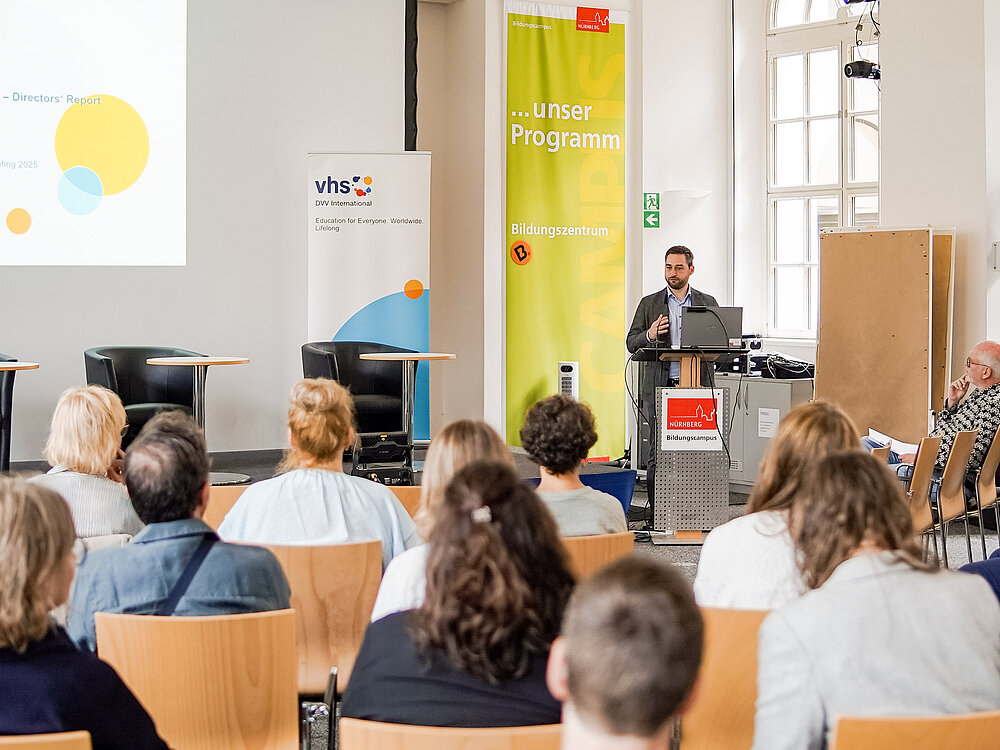On 27 and 28 August 2025, around 40 national and international staff members of DVV International convened in Nuremberg for this year’s Regional Directors’ Meeting.
The event was hosted at the Education Centre (BZ) on the invitation of Arne Zielinski, Director of the BZ, member of the DVV Executive Board and Chairman of the Board of Trustees of DVV International. Together with Uwe Gartenschlaeger, Director of DVV International, he formally opened the two-day programme.
The meeting served as an important platform for exchanging regional experiences, reflecting on shared challenges, and defining the strategic priorities for the years ahead.
The opening sessions focused on the current challenges confronting development cooperation both in Germany and internationally. In a panel discussion, Sven Grimm (German Institute of Development and Sustainability – IDOS) and Hanno Spitzer (Federal Ministry for Economic Cooperation and Development – BMZ) explored these issues with the international participants. The debate also highlighted the important role of German adult learning and education centres (Volkshochschulen, vhs) in fostering open dialogue with citizens on questions of global responsibility, thereby helping to counter the decline in public support for international cooperation.
Together with colleagues from Bonn, questions concerning the content of project work in a rapidly changing world were also discussed over the two days. Participants engaged with Sylvia Rager from the Federal Employment Agency on questions concerning the recruitment and training of skilled workers. Further key themes included the role of artificial intelligence and digital learning in adult education, innovative monitoring and evaluation tools, as well as opportunities for cooperation with non-governmental partners in contexts that are increasingly characterised by ‘shrinking spaces’ for civil society.



